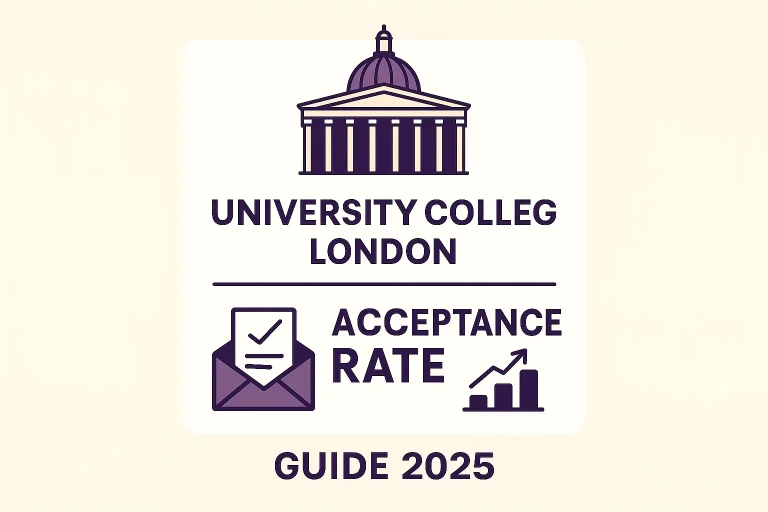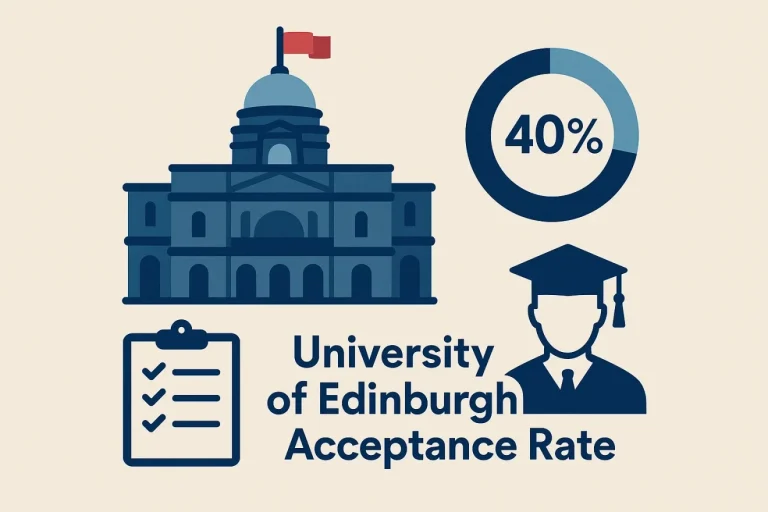Picture this: It’s 2 AM, you’re hunched over your laptop trying to finish an assignment that’s due tomorrow, while simultaneously feeling guilty about missing yet another social gathering with your flatmates. Sound familiar? You’re not alone. The struggle to master time management for international students while maintaining a healthy social life is one of the biggest challenges faced by over 600,000 international students currently studying in the UK.
The pressure is real – you’re navigating a new academic system, adapting to a different culture, and trying to make meaningful connections, all while excelling in your studies. But here’s the good news: with the right strategies and mindset, you can absolutely achieve that perfect balance.
By the end of this comprehensive guide, you’ll know exactly how to create a sustainable schedule that accommodates both your academic goals and social aspirations, discover proven time management techniques used by successful international students, and learn how to overcome the unique challenges that come with studying abroad in the UK.
The Reality of International Student Life in the UK
Understanding the Unique Challenges
International students face a complex web of responsibilities that their domestic counterparts might not fully understand. According to recent data from the UK Council for International Student Affairs, 78% of international students report feeling overwhelmed during their first year, with time management being the primary concern.
The challenges are multifaceted:
Academic Pressures: Different teaching styles, varying assessment methods, and higher expectations can create significant stress. The UK’s academic system often emphasizes independent learning and critical thinking, which may differ from your home country’s approach.
Cultural Adaptation: Every social interaction becomes a learning experience. Simple activities like grocery shopping or understanding local customs require additional mental energy and time.
Financial Constraints: With limited budgets, international students must be strategic about how they spend both time and money on social activities.
Distance from Support Systems: Without family and longtime friends nearby, building new relationships becomes crucial for mental health and overall success.
The Cost of Imbalance
Research from the Higher Education Statistics Agency reveals that 25% of international students who struggle with time management report decreased academic performance, while 40% experience increased stress levels that impact their overall well-being.
The consequences of poor time management extend beyond grades:
- Increased anxiety and mental health issues
- Missed networking opportunities
- Reduced cultural integration
- Higher dropout rates
- Limited career prospects post-graduation
Data-Driven Insights: What the Numbers Tell Us
Recent studies from the Office for Students show compelling data about international student success rates:
- Students who maintain regular social activities while studying achieve 15% higher grades on average
- 82% of successful international graduates report having a balanced approach to studies and social life
- Time management skills directly correlate with 23% better employment outcomes within six months of graduation
Social Integration Impact
The British Council’s annual report highlights the importance of social connections:
- International students with strong social networks are 60% more likely to complete their degrees
- Students who participate in at least two social activities per week show 35% better mental health indicators
- 89% of employers value candidates who demonstrate cultural adaptability through social engagement
Time Allocation Patterns
Successful international students typically follow these time distribution patterns:
- 40-50% dedicated to academic work (lectures, assignments, studying)
- 20-25% for social activities and cultural exploration
- 15-20% for personal care and daily necessities
- 10-15% for part-time work or internships
The Science Behind Effective Time Management
Cognitive Load Theory
Understanding how your brain processes information is crucial for effective time management. Dr. John Sweller’s Cognitive Load Theory explains that our working memory can only handle limited information simultaneously. For international students, this means:
Intrinsic Load: The mental effort required to understand new academic concepts Extraneous Load: Additional cognitive burden from language barriers and cultural differences Germane Load: The productive mental work that leads to learning and skill development
The Social Connection Imperative
Neuroscience research demonstrates that social connections aren’t just beneficial – they’re essential for optimal brain function. The University of Oxford’s research indicates that students with strong social networks show:
- Enhanced problem-solving abilities
- Improved memory retention
- Better stress management
- Increased motivation and persistence
Step-by-Step Time Management Framework for International Students
Phase 1: Assessment and Goal Setting
Step 1: Conduct a Time Audit Track your activities for one full week using a simple smartphone app or notebook. Categorize time spent on:
- Academic work (lectures, studying, assignments)
- Social activities (meals with friends, events, cultural activities)
- Personal care (sleep, exercise, meals)
- Administrative tasks (banking, shopping, accommodation matters)
Step 2: Define Your Priorities Create a priority matrix with four categories:
- Urgent and Important: Assignment deadlines, exam preparation
- Important but Not Urgent: Building relationships, skill development
- Urgent but Not Important: Administrative tasks, routine errands
- Neither Urgent nor Important: Excessive social media, mindless entertainment
Step 3: Set SMART Goals Establish Specific, Measurable, Achievable, Relevant, and Time-bound objectives for both academic and social aspects of your life.
Phase 2: Strategic Planning
Step 4: Create Your Master Calendar Use digital tools like Google Calendar or Microsoft Outlook to map out:
- Fixed commitments (lectures, seminars, part-time work)
- Flexible study blocks
- Social activities and cultural exploration
- Personal time and self-care
Step 5: Implement the 25-5 Rule For every 25 hours of academic work, allocate 5 hours for social activities. This ratio ensures you maintain balance while prioritizing your studies.
Step 6: Plan Your Week in Advance Every Sunday, spend 30 minutes planning the upcoming week:
- Review academic deadlines and requirements
- Schedule specific study sessions
- Block time for social activities
- Include buffer time for unexpected events
Phase 3: Daily Execution
Step 7: Use the Pomodoro Technique Work in focused 25-minute intervals followed by 5-minute breaks. This technique is particularly effective for international students as it:
- Maintains concentration despite language barriers
- Prevents mental fatigue
- Creates natural opportunities for social interaction during breaks
Step 8: Implement Batch Processing Group similar activities together:
- Dedicate specific days for grocery shopping and errands
- Batch similar assignments or reading tasks
- Consolidate social activities to maximize relationship building
Step 9: Practice the Two-Minute Rule If a task takes less than two minutes, do it immediately. This prevents small tasks from accumulating and overwhelming your schedule.
Phase 4: Social Integration Strategies
Step 10: Join Strategic Social Groups Choose activities that align with your interests and academic goals:
- Subject-specific study groups
- Cultural societies related to your field
- Sports clubs or fitness activities
- Volunteer organizations in your area of study
Step 11: Create Social Study Sessions Transform solitary study time into social learning opportunities:
- Form study groups with classmates
- Organize discussion sessions about course material
- Share knowledge and perspectives with peers from different backgrounds
Step 12: Establish Regular Social Commitments Schedule recurring social activities to ensure consistency:
- Weekly coffee meetings with course mates
- Monthly cultural exploration trips
- Regular participation in accommodation social events
Overcoming Common Time Management Obstacles
Challenge 1: Perfectionism and Over-Studying
Many international students fall into the trap of excessive studying, believing it’s necessary for success. However, research shows that studying beyond the point of diminishing returns actually decreases performance.
Solution: Implement the 80/20 rule – 80% of your results come from 20% of your efforts. Focus on high-impact activities and accept that “good enough” is often sufficient.
Challenge 2: Fear of Missing Out (FOMO)
The desire to experience everything can lead to over-commitment and burnout.
Solution: Practice selective participation. Choose quality over quantity by attending events that align with your goals and interests.
Challenge 3: Language and Cultural Barriers
Communication challenges can make social activities feel intimidating and time-consuming.
Solution: Start with low-pressure social activities like joining international student groups or attending structured events where conversation topics are predetermined.
Challenge 4: Financial Constraints
Limited budgets can restrict social activity participation.
Solution: Seek free or low-cost alternatives:
- University-sponsored events
- Walking groups and outdoor activities
- Potluck dinners with flatmates
- Free museum days and cultural events
Digital Calendar Applications
- Google Calendar: Excellent for sharing schedules with study groups
- Microsoft Outlook: Integrates well with university email systems
- Apple Calendar: Seamless integration across Apple devices
Task Management Apps
- Todoist: Great for organizing assignments and social commitments
- Trello: Visual organization perfect for group projects
- Notion: Comprehensive workspace for notes, tasks, and planning
- Forest: Gamifies focus time while building virtual forests
- RescueTime: Tracks digital habits and time usage
- Freedom: Blocks distracting websites during study sessions
- Meetup: Find local groups with similar interests
- Facebook Groups: Connect with university and international student communities
- WhatsApp: Maintain communication with study groups and friends
Creating Your Support Network
Academic Support Systems
Study Groups: Form or join study groups within your program. These provide both academic support and social interaction.
Office Hours: Regularly attend professor and tutor office hours. Building these relationships can provide both academic guidance and mentorship.
Academic Skills Services: Most UK universities offer dedicated support for international students, including time management workshops and study skills sessions.
Social Support Networks
Accommodation Communities: If you’re living in student accommodation, actively participate in building activities and floor meetings. Your accommodation provider, like Uninist, often organizes events specifically designed to help students connect.
Cultural Societies: Join societies related to your home country as well as local cultural groups to bridge different aspects of your identity.
Religious or Spiritual Communities: If applicable, connecting with faith-based communities can provide emotional support and social connection.
Sports and Hobby Groups: Shared interests create natural conversation starters and ongoing relationships.
Measuring Success and Making Adjustments
Track your progress using these metrics:
Academic Success:
- Assignment grades and feedback quality
- Participation in class discussions
- Completion of readings and preparation
Social Integration:
- Number of meaningful relationships formed
- Participation in cultural activities
- Comfort level in social situations
Personal Well-being:
- Sleep quality and duration
- Stress levels and management
- Overall life satisfaction
Monthly Review Process
Conduct a monthly assessment to ensure your time management strategy remains effective:
- Review your time tracking data
- Assess goal achievement
- Identify challenges and obstacles
- Adjust strategies based on results
- Set goals for the following month
Seasonal Considerations for UK Students
Term-Time Strategies
During academic terms, maintain a structured approach:
- Weeks 1-4: Establish routines and build momentum
- Weeks 5-8: Maintain consistency while preparing for assessments
- Weeks 9-12: Increase focus on academics while maintaining essential social connections
Holiday Periods
Use breaks strategically:
- Christmas Break: Maintain social connections while catching up on academic work
- Easter Break: Balance intensive study with cultural exploration
- Summer Break: Develop new skills while maintaining academic engagement
Exam Periods
Adjust your social activities during high-stress periods:
- Reduce but don’t eliminate social interaction
- Choose supportive, understanding friends for limited social time
- Use study groups as a way to combine academic work with social connection
Advanced Strategies for Long-Term Success
Building Cultural Capital
Invest time in activities that enhance your cultural understanding and professional development:
Language Skills: Participate in conversation exchanges or language partnerships Professional Networks: Attend industry events and join professional associations Cultural Competency: Engage with local customs, traditions, and contemporary issues
Creating Multiple Success Pathways
Don’t put all your energy into one area. Develop diverse skills and relationships:
- Academic excellence
- Professional development
- Cultural integration
- Personal growth
- Social connections
Planning for Post-Graduation
Consider how your time management skills and social networks will benefit your future:
- Career Opportunities: Many jobs come through personal networks
- Cultural Adaptability: Employers value international experience
- Global Perspective: Your unique background becomes a professional asset
The Role of Accommodation in Time Management
Choosing the Right Living Situation
Your accommodation choice significantly impacts your ability to balance studies and social life. Consider these factors:
Location: Proximity to campus affects commute time and spontaneous social opportunities Community: Shared accommodations provide built-in social networks Facilities: Study spaces, common areas, and social facilities influence your daily routine Support Services: Accommodation providers who understand international student needs can provide valuable assistance
Maximizing Your Living Environment
Create Dedicated Spaces: Establish clear boundaries between study and social areas Participate in Community Events: Engage with accommodation-sponsored activities and events Build Floor/Building Relationships: Your immediate neighbors can become your closest support network Utilize Common Spaces: Use shared areas for both study and social activities
Your Journey to Balanced Success
Mastering time management for international students isn’t about perfection – it’s about creating sustainable systems that support both your academic goals and personal well-being. The strategies outlined in this guide have helped thousands of international students thrive in the UK’s dynamic educational environment.
Remember, balance looks different for everyone. What matters is finding an approach that honors your academic ambitions while allowing you to build meaningful relationships and fully experience life as an international student in the UK.
The key is to start small, be consistent, and remain flexible as you discover what works best for your unique situation. Your time as an international student is an investment in your future – make sure you’re getting the full return on that investment by excelling academically and building the relationships that will enrich your life for years to come.
Ready to take control of your time and transform your international student experience?
If you’re looking for accommodation that understands the unique needs of international students and provides the community support essential for balanced success, book a free consultation with Uninist today. Our expert team specializes in connecting international students with accommodation solutions that support both academic achievement and social integration. Visit Uninist.com or contact our dedicated international student support team to discover how the right living environment can enhance your time management success and overall UK experience.
Your balanced, successful student life starts with making the right choices – let us help you make accommodation one less thing to worry about while you focus on achieving your academic and social goals.
FAQ
How do international students effectively manage their time between studies and social activities?
International students can achieve effective time management by following the 25-5 rule: allocating 25 hours to academic work for every 5 hours of social activities. Creating a structured weekly schedule with dedicated study blocks and social time helps maintain balance while ensuring academic success.
What are the biggest time management challenges faced by international students in the UK?
The primary challenges include adapting to new academic systems, cultural adjustment requiring extra mental energy, financial constraints limiting social options, and building support networks from scratch. Research shows 758,855 overseas students are currently studying at UK universities, with many experiencing these common obstacles.
How many hours should international students dedicate to social activities per week?
Successful international students typically allocate 20-25% of their weekly schedule to social activities, approximately 10-15 hours per week. This balance ensures adequate cultural integration and relationship building while maintaining academic priorities and meeting visa requirements.
Can poor time management affect international students’ academic performance and visa status?
Yes, poor time management significantly impacts both areas. Studies indicate students with time management issues show 25% decreased academic performance, while attendance requirements and academic standing directly affect visa compliance. Maintaining balance protects both academic and legal status.
What time management techniques work best for international students with language barriers?
The Pomodoro Technique (25-minute focused study intervals) proves most effective for international students facing language barriers. This method prevents mental fatigue, maintains concentration despite comprehension challenges, and creates natural opportunities for social interaction during breaks.
How can international students build social connections without compromising their studies?
Combine social activities with academic goals by joining subject-specific study groups, participating in cultural societies related to your field, and organizing group study sessions. This approach builds meaningful relationships while supporting academic objectives and cultural integration.
What role does accommodation choice play in time management for international students?
Accommodation significantly impacts time management through location proximity to campus, built-in social networks in shared spaces, and community support services. Strategic accommodation choices can reduce commute time while providing natural opportunities for both study collaboration and social interaction.
How should international students handle social activities during exam periods?
During exam periods, reduce but don’t eliminate social activities. Maintain essential connections through supportive study groups and brief social breaks. Allocate 10-15% of time to low-key social activities that support mental health without disrupting intensive study schedules.
What are the consequences of not maintaining work-life balance as an international student?
Poor balance leads to increased anxiety, missed networking opportunities, reduced cultural integration, and higher dropout rates. Research indicates balanced students achieve 15% higher grades and show 60% better completion rates, while also improving post-graduation employment prospects.
How can international students find free or low-cost social activities in the UK?
Universities offer numerous free events, walking groups, and cultural activities. Students can participate in accommodation social events, free museum days, potluck dinners with flatmates, and university-sponsored international student gatherings. These options provide social engagement within typical student budgets.








